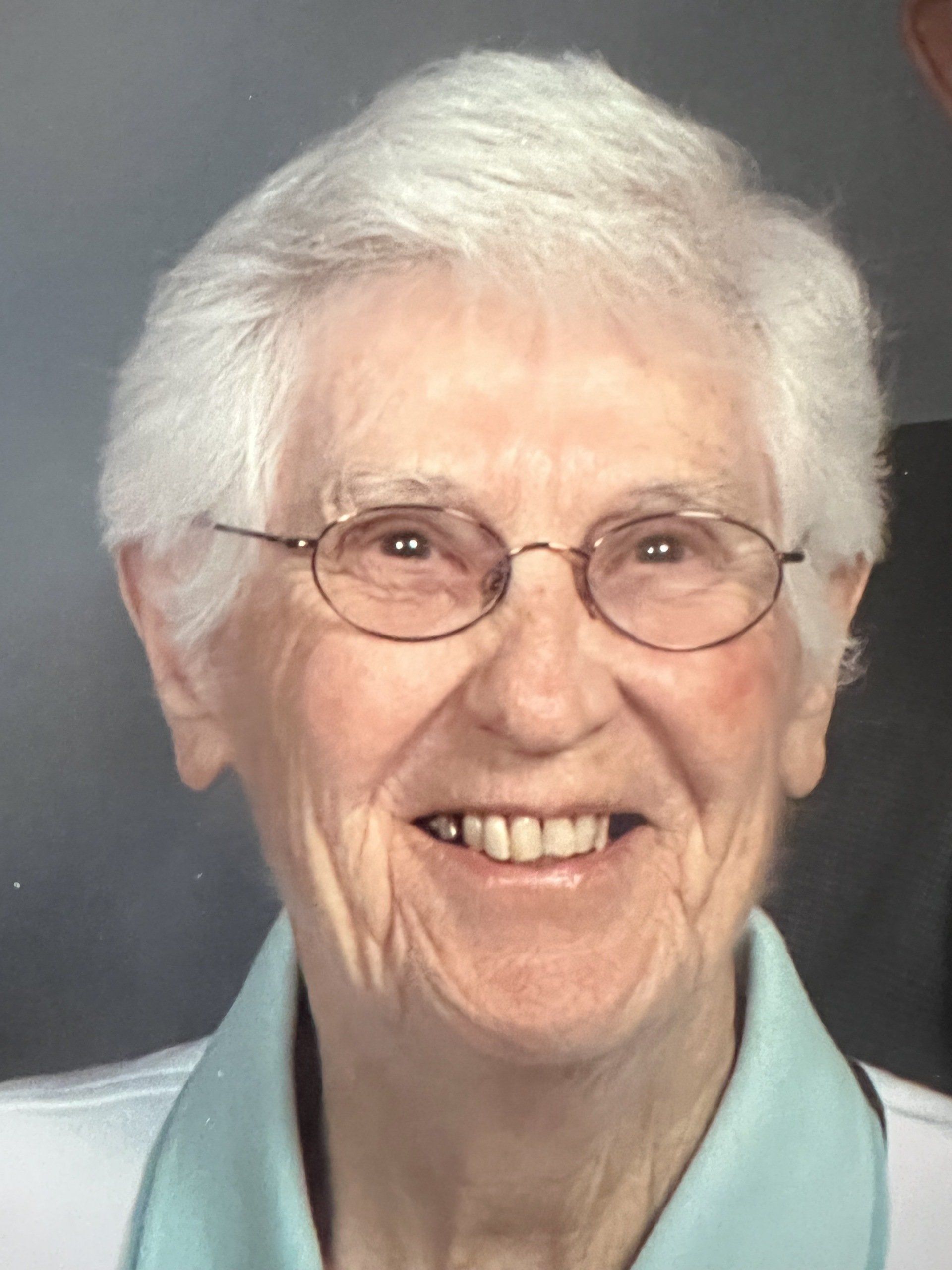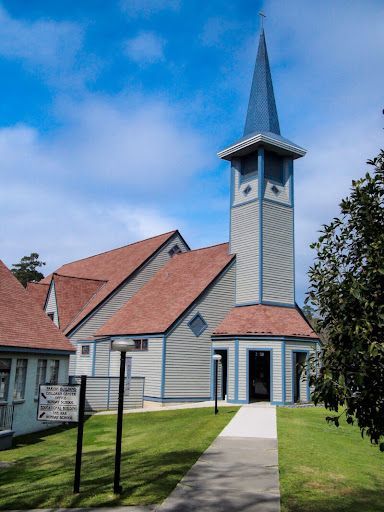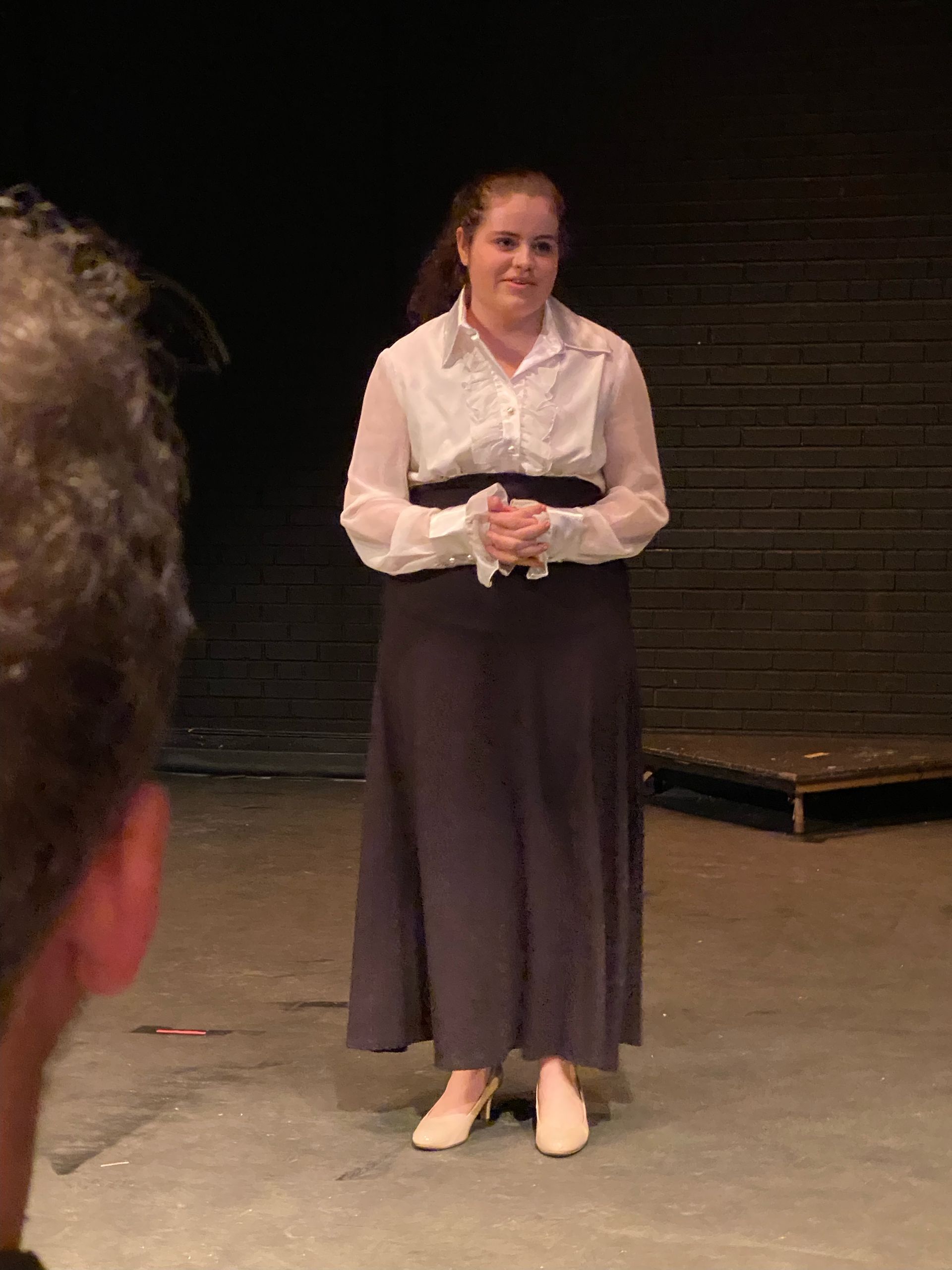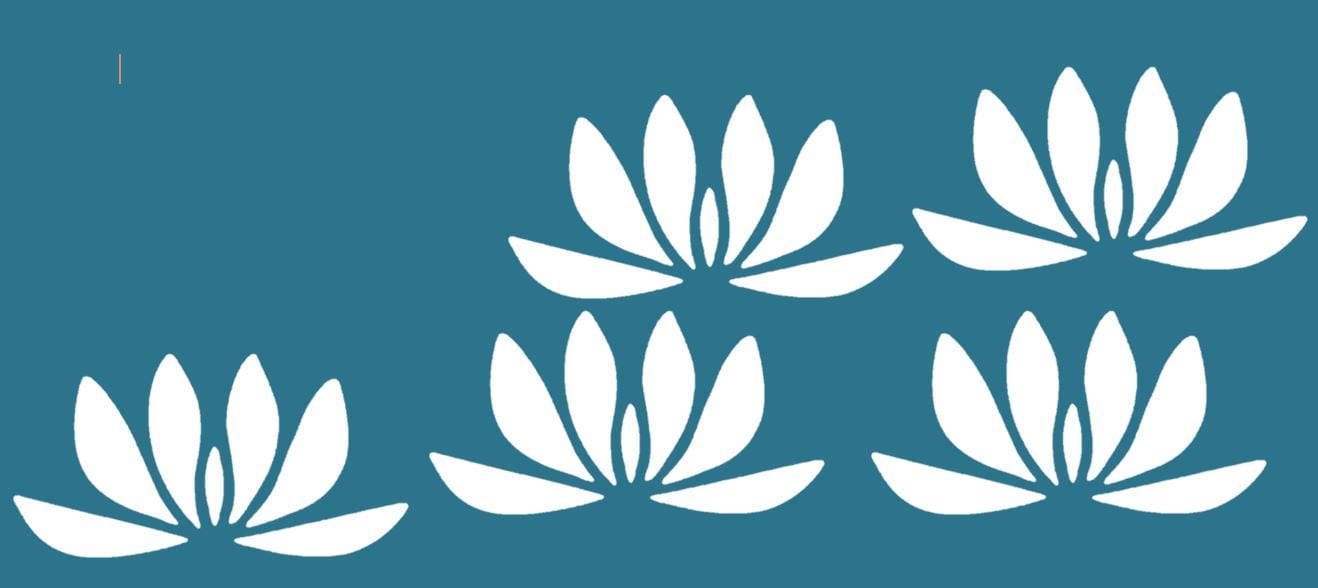Spirit of WELCA June 16
July 8, 2022
And forgive us our debts...
And forgive us our debts, as we also have forgiven our debtors….
For if you forgive other people when they sin against you, your heavenly Father will also forgive you. But if you do not forgive others their sins, your Father will not forgive your sins.
— Matthew 6:12, 14-15
Following the Call—Chap. 36: As We Forgive
Last week, while at prayer, I suddenly discovered—or felt as if I did—that I had really forgiven someone I have been trying to forgive for over thirty years. Trying, and praying that I might. When the thing actually happened—sudden as the longed-for cessation of one’s neighbor’s radio—my feeling was “But it’s so easy. Why didn’t you do it ages ago?”
— C. S. Lewis
The Will to Forgive
The human condition is an enigma. Even when we know something is good for us we often refuse to do it. Like forgiving. We know we should forgive, as Jesus commands, and may even want to forgive, but we find ourselves unable to. But then, all of a sudden, something changes. Our hearts are free! It’s like C. S. Lewis describes: It’s so easy; why did it take ages to do so?
To forgive from the heart, especially when one has been terribly hurt, is a gift and a mystery. This is partly because forgiveness transcends our sense of fairness. It also challenges our pride. There’s a fine line between, “I can’t forgive,” and “I won’t forgive.” As Philip Yancey observes, “We nurse sores, go to elaborate lengths to rationalize our behavior, perpetuate family feuds, punish ourselves, punish others—all to avoid this most unnatural act” (What’s So Amazing About Grace). Either way, to forgive involves as much a choice on our part as it does a work of grace on God’s part.
But still, what are we to do when we can’t forgive or are unwilling to do so? Is there anything that can help the seed of forgiveness grow in us?
One thing I have found helpful is to be clear about what forgiveness actually involves. Sometimes we can’t forgive because we are confused about what forgiveness means; we try to do what we are not meant to do. For example, to forgive does not mean to deny the hurt we feel. In fact, without naming our pain we won’t be able to begin the forgiveness process. Sometimes the one who hurts us is the one we love most. It is hard to acknowledge the truth that this very person could do such a wrong. But we must.
Another thing forgiveness is not is forgetting. Forgiveness removes only the pain of injury, not the memory of it. “You may recall the hurt,” writes David W. Augsburger, “but you do not have to relive it. The hornet of memory may fly again, but forgiveness has drawn its sting” (The Freedom of Forgiveness). It’s not the past that we need to be freed from, but the stronghold the past has had on us.
Sometimes we think that forgiveness demands letting someone off the hook. We instinctively react against this, and rightly so. To forgive involves recognizing the moral wrong committed, otherwise there would be no pain and nothing to forgive. Forgiveness judges a wrong action as wrong, but it also refuses to condemn the wrongdoer. Forgiveness sides with the offender’s dignity instead of their wrongdoing. They, like us, can begin again. The good news is that the offender and the victim can both become free.
Finally, forgiveness is not the same thing as reconciling. If we think that forgiveness will set everything right we’ll either be severely disappointed or risk becoming angrier. Forgiving a wrongdoer is no guarantee that things will be mended. It takes two to restore a relationship. To forgive from our side frees us, but the person we forgive may, for whatever reason, still be out of reach.
Stories Help
Hearing and reading the stories of others who have struggled to forgive can be a great source of strength and hope. This is why I recommend Johann Christoph Arnold’s book Why Forgive? to anyone I meet who can’t seem to forgive. Every story is different, but each one describes the healing power of forgiveness. Whether we are able to forgive quickly or, like C. S. Lewis, only after a long period of time, forgiveness is possible. It’s a power like no other.
This and other blog entries can be found at www.joyderrick.org/blog
Relationship with God is personal, but not private. It is intended to be shared. Our spiritual health is real when we delight in a relationship with God and share this joy with others. Please send your own devotion, prayer or apolitical thoughts to joycemderrick@gmail.com to be shared with your WELCA sisters, one a day in the order in which they are received.

I am reading Wholehearted Faith by Rachel Held Evans. And I am inspired by her assertion that she said "yes” to Christianity because of so many examples of Christian women, women of the Bible and women in her life. It is impossible to read her examples without thinking of the women in my own life that reflected God’s love for me. First would have to be my mom, Mary Meynardie, who early in her life went to Japan as a missionary. Because of that my brothers and sister and I were raised in the mission field and learned the lessons of that life. And now at 98 with her memory fading and her eyesight dimming and her hearing fading, she still proclaims every day that she knows that God loves her. And because of our “maid”, Tomesan, who came to live with us in Japan. She was written out of her family book when she married and then written out of her husband’s family book when he died before she had produced an heir. She was at that point the equivalent of “a man without a country.” But she had become a Christian and her pastor, Pastor Tasaka, found her a place with our family. She was, for my sister and I, unconditional love. And then there were all my aunts and uncles back in the states, who we had never met, but for some reason showered us with love. I remember being shocked by this love from (for me) virtual strangers. And my sister, who despite my bossy, sometimes grumpy ways never once wavered in her sweet love for me. (Well maybe once, ask me about the vile perfume, Daisies Won’t Tell.) And the kindergarten teacher who loved me despite the fact that I was too shy to answer the role. And the high school teacher who advised me to find a way, any way, to speak in front of a group of people. And years later after I was married I took on the job of Sunday School assistant superintendent, mentored by Nell Hair, where my only job was to announce the hymn number at the Sunday School openings. And I managed to do that in front of a fellowship hall full of people. And the women of St. Lukes who showed up during the pandemic to prove to me and to each other that we were not alone. And just like Rachel Held Evans, there are too many women to mention. Women who showed me by their example the joys of being a Christian. And because of these women, I can say yes, too!

When I was young my family attended three services every Sunday. In the mornings we attended Yokohama Lutheran Church. This was the church my parents started as missionaries. The service was in Japanese. My sister visited this church on a recent trip to Japan. Pictures of our family are still on display there. Closer to noon we attended the church on the bluff. This was a protestant service for all the English speaking foreigners in the area. This church was the church our friends from Yokohama International School attended. We enjoyed being with our friends here. And then in the evenings we attended a service for the military families stationed in Yokohama. I think Mom and Dad had responsibilities at all three. I have gone to a lot of “church”, but I think the most meaningful services have been at churches where I was a stranger. There is something about not knowing anyone and having no responsibilities that allows my brain to pay attention to the service and worship God. The fact that these “strangers” are saying the same words and singing the same hymns that are familiar to me is a powerful reminder of the vastness of God’s church. And for some reason I pay attention. Earlier this year I had to drop out of literally everything at St. Lukes because of some serious problems with my back. As I recovered and began attending services again, I could appreciate parts of the service that I had not been paying attention to. I know I‘ll rejoin many of the things I have had to drop out of, but I do thank God for this silver lining that has allowed me to be more present at worship.

A little later today SCWELCA president, Risse Snelgrove and I will give this little speech to the Synod Assembly gathered in Columbia, SC. The theme this year is “I See Jesus.” I See Jesus in Our Community You’ve heard of the butterfly effect. That theory that everything you do matters. That your actions have consequences long after one might think the influence has dissipated and is gone forever. You see in 1963 Edward Lorenz presented a hypothesis to the New York Academy of Science. His theory, stated simply, was this: A butterfly could flap its wings and set molecules of air in motion, which would move other molecules of air, in turn moving more molecules of air - eventually capable of starting a hurricane on the other side of the planet. Lorenz and his ideas were literally laughed out of the conference. What he had proposed was ridiculous. So, imagine the scientific community's shock and surprise when, more than thirty years after the possibility was introduced, physics professors working from colleges and universities worldwide came to the conclusion that the butterfly effect was authentic, accurate and viable. And so, it is even with our lives. Every single thing we do matters. We have been created as one of a kind. On the planet Earth there has never been one like you…and there never will be again. Your spirit, your thoughts and feelings, your ability to reason and act all exist in no one else. The rarities that make you special are no mere accident or quirk of fate. YOU HAVE BEEN CREATED IN ORDER THAT YOU MIGHT MAKE A DIFFERENCE. YOU HAVE WITHIN YOU THE POWER TO CHANGE THE WORLD. The very beating of your heart has meaning and purpose. Your actions have value far greater than silver or gold. Your life and what you do with it today… MATTERS FOREVER. In WELCA we see this happen every day. As our members live out the WELCA purpose statement to support one another in our callings, engage in ministry and action, and promote healing and wholeness in the church, the society and the world we see Jesus in each other. Some of the things we do are little things like listening to each other, providing food, rides, and cards in times of need. Our circles function as communities that strengthen us and ground us in seeing Jesus in each other as we support and are supported by each other. And each loving act has the effect of growing Jesus in us. WELCA circles are modern examples of Jesus’ love. We see Jesus in each other. And that love for each other, that reflection of Jesus helps us to see him in our community every day. And as in The Butterfly Effect the influence of each small thing done with great love will not end with us, but its influence will go on forever.

During the bombing raids of World War II, thousands of children were orphaned and left to starve. The fortunate ones were rescued and placed in refugee camps where they received food and good care. But many of these children who had lost so much could not sleep at night. They feared waking up to find themselves once again homeless and without food. Nothing seemed to reassure them. Finally, someone hit upon the idea of giving each child a piece of bread to hold at bedtime. Holding their bread, these children could finally sleep in peace. All through the night the bread reminded them, “Today I ate and I will eat again tomorrow.” Each night I first get in touch with what I am grateful for from the day and I give thanks. Then I ask what I am not so grateful for. When I discover something I am not grateful for, I name it, feel it, and appreciate that I am not denying it and God is with me in it. Healing occurs to the degree that I welcome all my feelings and let myself be loved by them. In this way I honestly acknowledge pain and I take in love. Then I can usually fall asleep with a grateful heart. Matthew Linn

TGIF ~Hitoshi’s Reflection~ (This article was written in Japanese for Kuwamizu members and Hitoshi wants to share this with you.) "Thank God It's Friday" was the title of an American movie about 45 years ago. It seems that the theme song continues to be played at discothèques even in Japan. In English, we often see and hear the phrase abbreviated "TGIF". There is also a restaurant chain called TGI Friday’s in the United States and in the Tokyo area. In Japanese, TGIF literally translates to "Kami ni kansha (Thank God) Kyowa Kinyobi desu (Today is Friday)." However, when the phrase is used in English, it refers to the joy felt at the end of the week; the day before the weekend begins. In Japanese, it is used in context of "Hana Kin (Flower Friday)". But as Christians, let’s think about the deeper meaning of TGIF. This year, the week of April 2nd was Holy Week, and Kuwamizu Church held worship services at 7:30pm for three consecutive nights from Holy Wednesday to Holy (Good) Friday. On Good Friday there were two additional services, one was in English. Of course, it is meaningful for Christians to give thanks to God on this special Friday. Hitoshi thinks there's a deep hidden meaning to TGIF. Since the day of Jesus’ resurrection was Sunday, Christian churches hold services every Sunday. And the phrase TGIF is used every week. We should remember the Friday of the Cross every week, which shows God’s enduring love toward humanity. He mercifully forgives us and continually gives us our lives.

Now may the God of peace…make you complete in every good so you may do his will. Hebrews 13: 20-21 We get nervous when the words “works” and “faith” are in the same sentence. Martin Luther rightly challenged the teaching that one had to earn God’s favor. Yet, let’s not confuse “earn" with “effort.” Putting effort into our faith, into becoming a disciple of Jesus, is not the same thing as trying to gain points with God. The spiritual disciplines are tools for intentional training in discipleship. Like practicing scales on a piano, or running drills on a soccer field, practices like prayer, fasting, study, worship, and so on are aids to our maturing as followers of Christ. They are ways of practicing before we find ourselves in situations where we need to love an enemy or be the presence of Jesus in a tough-love situation. Many professions train regularly to be better prepared for crisis situations. Training in Christlikeness can develop a spiritual muscle memory that will instinctively respond well when we are emotionally broadsided. O Lord show me the tools I need to strengthen my discipleship. Amen By Valerie E. Hess (The Word in Season)

I just returned from Charlotte, NC to see my granddaughter star in her high school production of Our Town by Thornton Wilder. (Well, in my opinion she was the star:) I’m sure many of you know this poignant story of ordinary life in small town America. I’m also pretty sure that because most of you know the story, it's no spoiler to tell you that the protagonist, Emily, dies in the third act, while giving birth. We get to see her after her death talking to the “stage manager” (my granddaughter) lamenting that we don’t value day to day life as we live it, but only seem to appreciate life after it’s gone. EMILY: “Good-by, Good-by, world. Good-by, Grover's Corners... Mama and Papa. Good-by to clocks ticking... and Mama's sunflowers. And food and coffee. And new-ironed dresses and hot baths...and sleeping and waking up. Oh, earth, you're too wonderful for anybody to realize you.” EMILY: "Does anyone ever realize life while they live it...every, every minute?" STAGE MANAGER: "No. Saints and poets maybe...they do some.” ― Thornton Wilder, Our Town “Thank you for the world so sweet. Thank you for the food we eat. Thank you for the birds that sing. Thank you God for everything.”

“Everything exposed to the light itself becomes light,” says Ephesians 5:13. In prayer, we merely keep returning the divine gaze, and we become its reflection, almost in spite of ourselves. (2 CORINTHIANS 3:18). The word prayer has often been trivialized by making it into a way of getting what we want. But I use prayer as the umbrella word for any interior journeys or practices that allow you to experience faith, hope and love within yourself. It is not a technique for getting things, a pious exercise that somehow makes God happy, or a requirement for entry into heaven. It is much more like practicing heaven now. By Richard Rohr

I have been offered the position of Program Coordinator for the Bega Kwa Bega Companionship between St Paul’s Area Synod and the ELCA Tanzania. I accepted and leave the first week in August traveling to Iringa, Tanzania for 2 yrs Susan Buecher (formally of Grace Circle, St. Lukes) Bega Kwa Bega is the phrase we use to describe our companion synod relationship with the Iringa Diocese of the Evangelical Lutheran Church in Tanzania (ELCT). In English, the phrase means ‘shoulder to shoulder’, describing the way in which we accompany one another in a spirit of mutuality, inclusivity, and vulnerability. At its heart Bega Kwa Bega is a joint ministry between communities of faith in the ELCA and ELCT, whose purpose is to proclaim the Gospel of Jesus Christ, to extend Christian hospitality, and to strengthen relationships with one another through the shared practices of prayer, presence, and projects. Through the work of this partnership and the leading of God’s Holy Spirit, we envision a deeper faith and fuller life, accompanying one another as participants in God’s ongoing mission in both America and Tanzania. We invite you and your congregation to learn more about us and join in the journey. Karibu sana! (You are warmly welcome!) https://spas-elca.org/mission/global-mission/tanzania/ https://spas-elca.org/category/blog/bega-kwa-bega/ ELCA Global Mission’s engagement throughout the East Africa region is diverse and includes relationships with two of the oldest, largest Lutheran churches in Africa. The Evangelical Lutheran Church in Tanzania has over 5 million members and is celebrating its 50th Jubilee. The Malagasy Lutheran Church has over 3 million members and was formed in 1950. Prior to the official formation of these churches, mission outreach from the U.S. and Europe had started in the 19th century. Both of these churches spread the gospel by holistic development of the people through evangelism, social ministries and leadership development. The ministries in the East Africa region are strengthened by the 26 ELCA synods relating to the Evangelical Lutheran Church in Tanzania. This is the highest number of companion synod relationships within one region; 20 of those relationships are with the Evangelical Lutheran Church in Tanzania.

Maundy Thursday represents the Last Supper, when Jesus established the sacrament of Holy Communion by eating a meal with his disciples before his arrest and crucifixion. We observe Maundy Thursday with a Communion service and a foot-washing ceremony. These traditions help us reflect on the sacrifice of Jesus and his commandment for us to love and serve others. From our Bishop… The parade is over. The singing and joyous celebrating are now just a memory from Sunday. The palms are all cleaned up, and the city of Jerusalem is quiet. Tonight, we get one last meal with Jesus. But, before the action picks up in Gethsemane tomorrow, we get one last lesson from our Lord. He tells us to love each other. He doesn't just give it lip service. He gets down on his knees, pours water into a bowl, and washes the disciples' dusty feet. This is the love he speaks about. Humble, lowly devotion to the ones you love. It's a love that carries no glamour. It's a love that gains you nothing other than sideways glances from others, who would never do something that is beneath them. Jesus is showing us that love is costly. But more importantly, it is holy. How we love each other echoes an eternity. It is how we identify ourselves as followers of Christ. It is our calling card for the world. As we, the church, enter into the three days of Christ's death and resurrection, I pray we hear this one last lesson about our identity as citizens of God's Heavenly Reign. People will know us by how we love each other. People will know. People will see where our hearts and our values are by how we fall to our knees and reach out in service to our neighbor. Our promise in Jesus' resurrection is firm, and our call and identity are clear. When we get to the other side of the big celebration Sunday morning, and those decorations are cleaned up, and we go back out into the world, I pray that this identity shines brightly and clearly. Prayer: Lord Jesus, servant of all, we lift up our hearts to your command. Give us the strength to love as you love us. Amen.
